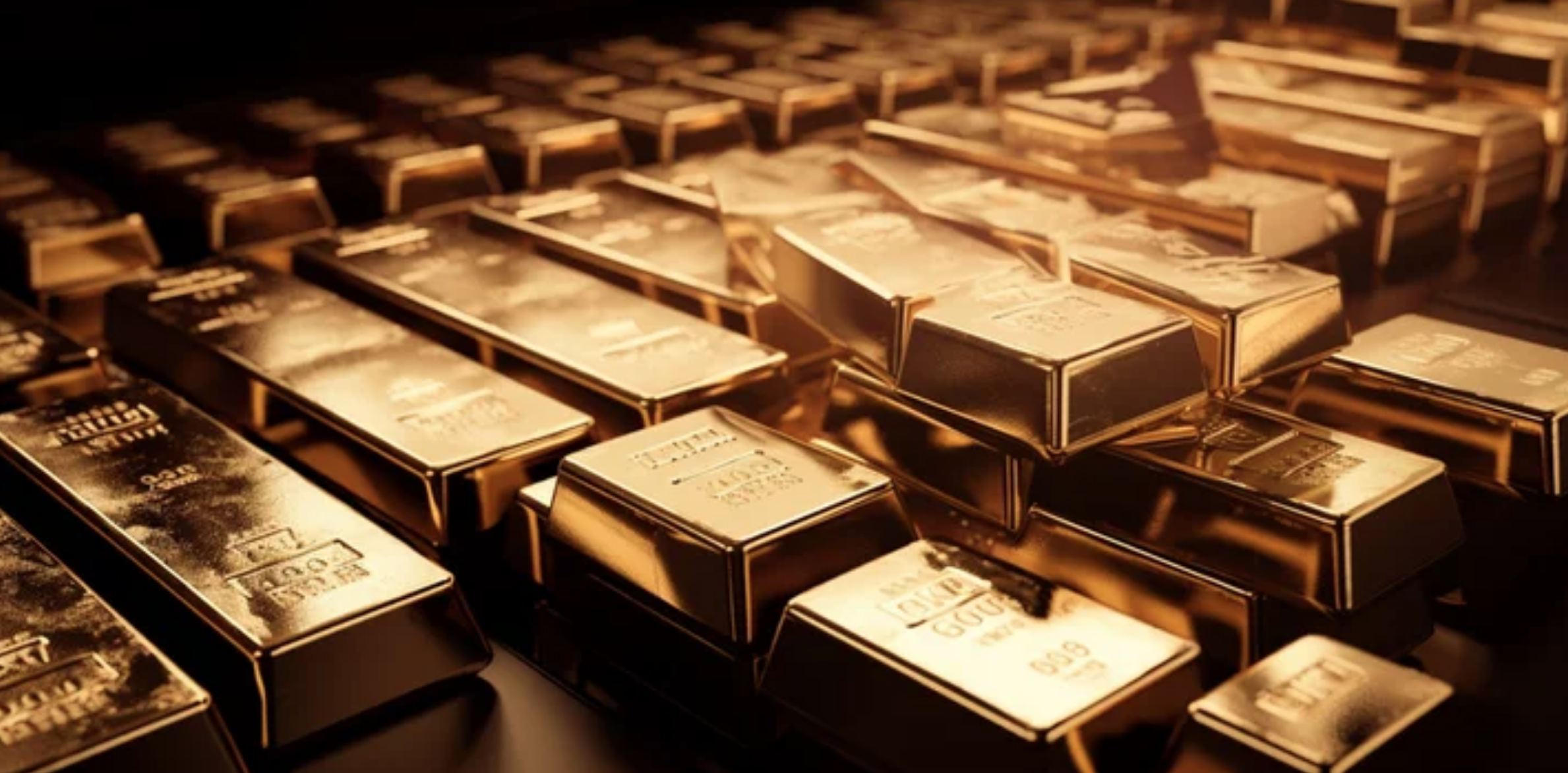Introduction: The United Arab Emirates (UAE) recently made headlines with its substantial purchase of Russian gold, signalling a significant shift in the global economic landscape. This strategic move by the UAE underscores a growing trend of de-dollarisation as nations seek to diversify their reserves and reduce reliance on the US dollar. In this article, we will explore the implications of the UAE’s record purchase of Russian gold and the broader de-dollarisation movement.
The UAE’s Gold Acquisition: In a surprising development, the UAE Central Bank announced its acquisition of a substantial amount of Russian gold, marking a significant departure from its traditional reliance on US dollars and other major currencies. While the exact amount of gold purchased has not been disclosed, reports suggest it could be in the range of several billion dollars’ worth.
Motivations behind the UAE’s Move: There are several key factors driving the UAE’s decision to increase its gold reserves. Firstly, the move serves as a hedge against currency volatility and potential devaluations of major currencies, including the US dollar. By diversifying its reserves into gold, the UAE aims to protect its wealth during uncertain economic times.
Secondly, the UAE’s purchase of Russian gold aligns with its broader efforts to strengthen economic ties with Russia. Over the past decade, the UAE has been actively fostering bilateral trade relations and strategic partnerships with Russia, aiming to diversify its economic alliances beyond the traditional Western sphere.
De-Dollarisation and Its Significance: The UAE’s record purchase of Russian gold is part of a larger trend known as de-dollarisation. This term refers to the process by which countries reduce their dependence on the US dollar as the global reserve currency and seek alternatives for international trade and financial transactions.
Several factors have contributed to the de-dollarisation movement. One of the key drivers is the long-standing dominance of the US dollar in the global financial system, which has given rise to concerns over excessive US economic and geopolitical influence. Additionally, economic sanctions imposed by the United States on various nations have motivated countries to explore alternatives to the US dollar, ensuring their financial autonomy and reducing vulnerability to potential restrictions.
Implications of the UAE’s Move: The UAE’s decision to acquire Russian gold carries significant implications for the global economic landscape. Firstly, it strengthens the UAE’s position as a major player in the global gold market, potentially boosting its influence and expanding its role in shaping gold prices. This move aligns with the UAE’s goal of diversifying its economy and reducing its reliance on oil. Furthermore, the UAE’s purchase signals growing confidence in Russia’s economic stability and underscores the strengthening bilateral ties between the two nations. This move could pave the way for increased economic cooperation and investment opportunities between the UAE and Russia.
Conclusion: The UAE’s record purchase of Russian gold highlights the ongoing de-dollarisation trend and signifies a shift in global economic dynamics. By diversifying its reserves into gold and strengthening economic ties with Russia, the UAE is taking proactive steps towards reducing its reliance on the US dollar. While the full implications of this move are yet to be seen, it is clear that de-dollarisation is gaining momentum as nations seek to safeguard their wealth, ensure financial autonomy, and foster stronger economic partnerships beyond the traditional Western sphere.
Conclusion: The UAE’s record purchase of Russian gold highlights the ongoing de-dollarisation trend and signifies a shift in global economic dynamics. By diversifying its reserves into gold and strengthening economic ties with Russia, the UAE is taking proactive steps towards reducing its reliance on the US dollar. While the full implications of this move are yet to be seen, it is clear that de-dollarisation is gaining momentum as nations seek to safeguard their wealth, ensure financial autonomy, and foster stronger economic partnerships beyond the traditional Western sphere.
The UAE’s move also poses questions for the future of the US dollar as the dominant global reserve currency. While the dollar has enjoyed unparalleled status for decades, the increasing trend of de-dollarisation could erode its position over time. As more countries seek alternatives and actively diversify their reserves, the international financial system may witness a gradual shift towards a more multipolar arrangement, with multiple currencies playing a significant role.
It is worth noting that de-dollarisation does not necessarily mean the complete abandonment of the US dollar. Rather, it implies a desire for greater balance and reduced vulnerability to economic and geopolitical risks associated with an over-reliance on a single currency. Countries are exploring options such as gold, other major currencies, and even the development of digital currencies to achieve this objective.
As the UAE’s record purchase of Russian gold grabs global attention, it serves as a reminder that the economic landscape is evolving. The move highlights the UAE’s determination to assert its economic independence and expand its influence in the global financial system. It also signals a growing trend among nations to reassess their reserve holdings and explore alternatives to the US dollar.
The implications of the UAE’s decision will unfold in the coming years, as other countries observe and potentially follow suit. The balance of economic power could shift, new alliances and partnerships may form, and the global financial system may undergo a transformation. Regardless of the outcomes, the UAE’s purchase of Russian gold serves as a testament to the changing dynamics of the global economy, where de-dollarisation is an increasingly significant factor.














